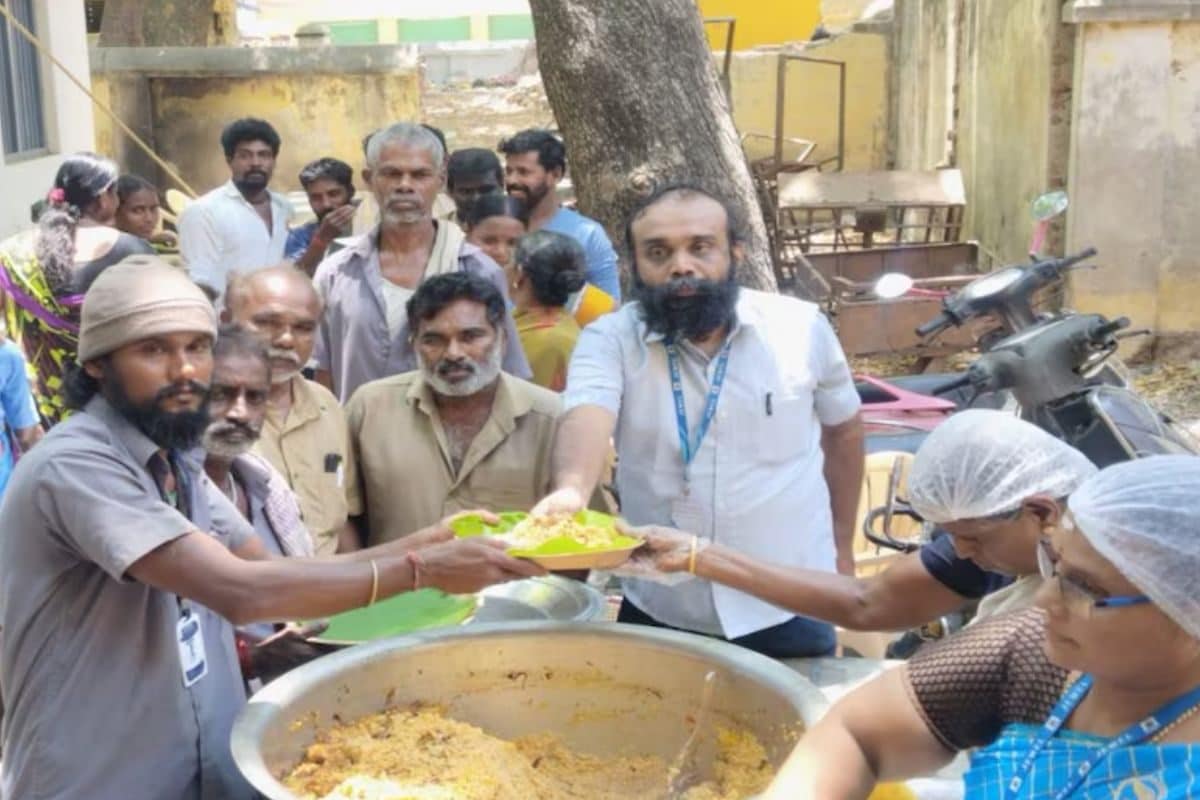In TN free meals initiative: A new chapter for sanitation workers
In TN free meals for sanitation workers has become one of the most talked-about welfare decisions recently announced by the Tamil Nadu government. The initiative, introduced by Chief Minister M.K. Stalin, ensures that thousands of sanitation workers across the state receive free and nutritious meals every day. The move is part of the government’s continuous effort to support those working in difficult and often hazardous environments to keep cities clean and functioning.

The government’s decision was welcomed widely by worker unions and civic bodies. It aims not only to meet basic nutritional needs but also to recognize the essential role played by these workers in maintaining public health. This initiative reflects the state’s inclusive approach towards improving the lives of people who form the backbone of urban hygiene and civic maintenance.
In TN free meals program focuses on dignity and health
The free meals program is expected to cover all sanitation workers employed by municipalities, corporations, and local bodies across Tamil Nadu. The government has identified that many of these workers, especially those in smaller towns, struggle with irregular work hours, limited access to food, and rising living costs. Through this scheme, meal centers will be established at key locations, ensuring every worker can easily access hot, healthy food during their shifts.

Officials stated that the meals will include traditional Tamil dishes prepared with attention to nutrition, giving workers a sense of comfort and belonging. The government plans to monitor the quality of food and expand the network of distribution centers depending on the number of workers in each region.
The initiative also highlights Tamil Nadu’s long-standing commitment to welfare schemes that directly benefit marginalized groups. Previous programs, such as Amma Canteens and subsidized food initiatives, have set a strong precedent for addressing hunger and poverty in the state.
In TN free meals drive strengthens social inclusion
Beyond nourishment, the scheme is a step toward social recognition and dignity. Sanitation workers often face stigma despite their vital role in society. By providing free meals as a government-supported entitlement, the state acknowledges their contribution and sends a message of equality and respect.

This initiative aligns with Tamil Nadu’s broader vision of inclusive development, where welfare programs are designed not as charity but as rights-based support. The plan also complements ongoing efforts to improve working conditions, provide medical coverage, and ensure safety equipment for sanitation staff.
Implementation and impact of In TN free meals plan
According to reports, the state will roll out the program in phases, beginning with major cities such as Chennai, Madurai, and Coimbatore. The early phase will focus on identifying high-density work areas where sanitation workers are most active during day and night shifts.
Each local body will coordinate with welfare departments to ensure food availability without interruption. Feedback mechanisms will be created for workers to report any issues related to quality or distribution. Experts believe that, apart from improving nutrition, this initiative could positively influence worker morale, attendance, and health outcomes.
View this post on Instagram
Economists and social experts have noted that such welfare schemes often bring indirect benefits by reducing absenteeism and increasing efficiency in civic departments. When workers are healthy and valued, the entire urban ecosystem functions more smoothly. Also Read: Chennai People Be Ready: Cyclone ‘Montha’ May Bring Heavy Rains and Strong Winds on October 27
Conclusion:
The In TN free meals initiative is more than just a welfare program it’s a symbol of respect for the people who keep Tamil Nadu’s cities clean and livable. By ensuring every sanitation worker receives a daily meal, the government has taken a step that blends compassion with policy, showing that true progress includes caring for those who work silently for society’s well-being.

